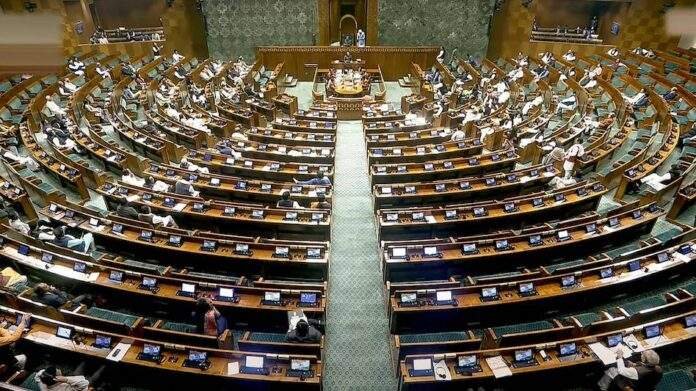In a significant legislative move, two bills aimed at laying the foundation for holding simultaneous elections across India were introduced in the Lok Sabha on Tuesday.
Titled ‘The Constitution (One Hundred and Twenty-Ninth Amendment) Bill, 2024’ and ‘The Union Territories Laws (Amendment) Bill, 2024’, these proposals sparked intense debate in the House. The bills advocate the concept of ‘One Nation, One Election’, proposing synchronized elections for the Lok Sabha and state legislative assemblies.
Bills Proposing ‘One Nation, One Election’ Introduced in Lok Sabha
The government’s proposal has drawn sharp criticism from the Opposition, which argued that the bills undermine India’s federal structure. Despite these objections, the bills were successfully introduced, with 269 members voting in favor and 198 opposing. This marked a historic moment, as it was the first instance of the electronic voting system being utilized in the new Parliament House.
The Path Forward: JPC Review
Following the vote, Law Minister Arjun Ram Meghwal formally tabled the Constitution (129th Amendment) Bill, 2024. In his statement, he emphasized the government’s commitment to comprehensive discussions, agreeing to send the bill to a Joint Parliamentary Committee (JPC) for further scrutiny. This decision came in response to Union Home Minister Amit Shah’s recommendation for a detailed review.
The JPC’s role will be pivotal in analyzing the feasibility, legal implications, and operational challenges of implementing simultaneous elections. The government has expressed confidence that the JPC’s deliberations will provide clarity and address concerns raised by various stakeholders.
Opposition’s Concerns
The Opposition has been vocal in its criticism, alleging that the proposal threatens India’s federal governance model. Several leaders argued that simultaneous elections could centralize power, diminishing the autonomy of state governments. They also questioned the practicality of aligning electoral cycles across the diverse political landscape of the country.
“This move is an attack on the federal structure enshrined in the Constitution. It undermines the very essence of cooperative federalism,” said a prominent Opposition leader during the debate.
Others raised concerns about logistical challenges, including the need for extensive administrative and financial resources to conduct elections on such a large scale. They demanded a transparent and inclusive consultation process to address these issues.
Government’s Stand
The government, however, dismissed these concerns as unfounded. Advocates of the bills argued that simultaneous elections would reduce the frequency of elections, leading to cost savings and minimizing disruptions to governance.
Union Home Minister Amit Shah emphasized the potential benefits of the proposal, stating, “One Nation, One Election will ensure stability and efficiency in governance. It will free up resources that are currently diverted towards frequent electoral exercises.”
Law Minister Meghwal reiterated the government’s commitment to upholding democratic principles, assuring that the JPC process would address all apprehensions raised by the Opposition.
A Landmark Session
The introduction of these bills also marked a technological milestone for the Indian Parliament. For the first time, the new electronic voting system was used in the Lok Sabha, ensuring a seamless and transparent voting process. This development was lauded as a step towards modernizing parliamentary procedures.
However, the proceedings were not without disruption. Following the heated debate and the voting process, the House was adjourned for over an hour, reflecting the high-stakes nature of the discussion.
Broader Implications
The concept of ‘One Nation, One Election’ has been a subject of debate for years, with proponents arguing that it would streamline governance and enhance political stability. Critics, on the other hand, caution against potential risks to democratic decentralization and the logistical complexities of synchronizing elections.
As the bills move to the JPC, the nation watches closely. The committee’s recommendations will be instrumental in shaping the future of this ambitious proposal. While the government appears determined to push forward, the path ahead is likely to be fraught with challenges and intense political negotiation.
The introduction of these bills marks a pivotal moment in India’s legislative history, bringing the debate on simultaneous elections to the forefront. As discussions continue, the outcome will have far-reaching implications for the country’s electoral system and federal governance structure.
ALSO READ: Spider-Man Beyond The Spider-Verse Release Date Update: Fans Face a Long Wait












